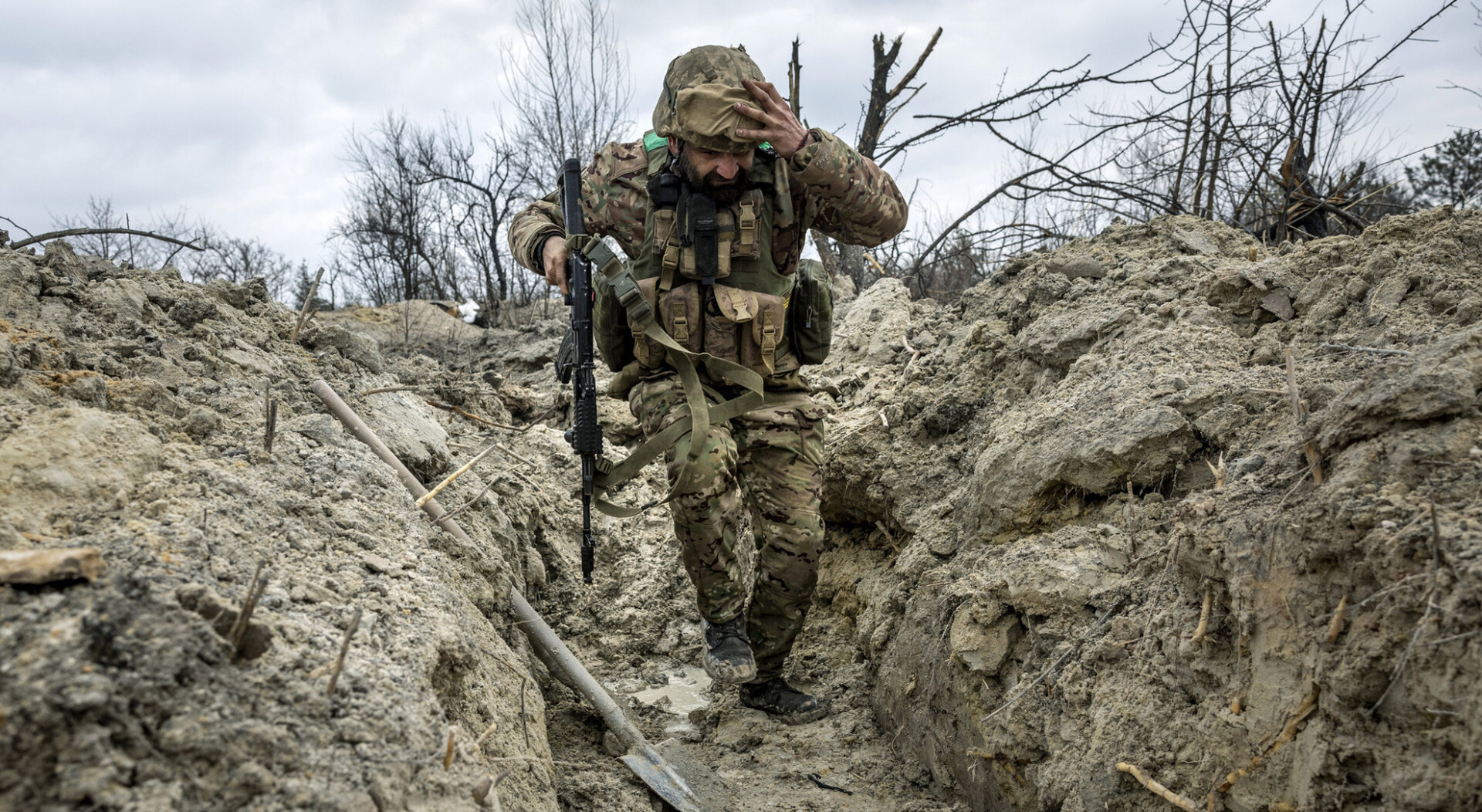‘Russia does not control the border,’ said Andrii Kovalenko, the head of the Center for Countering Disinformation at Ukraine’s National Security and Defense Council, on Tuesday. ‘Russian soldiers are lying about the controllability of the situation in the Kursk region’, he claimed.
This startling announcement came in response to one of the largest incursions into Russian territory of the war so far. The Russian Ministry of Defense reported that up to 300 Ukrainian troops this week attacked Moscow’s positions near Nikolaevo-Darino and Oleshnya in the Kursk region of Russia. While the MoD was emphatic that the situation on the border was ‘not critical’ and the Ukrainians had been ‘repelled’ — additionally refuting reports circulating on Ukrainian Telegram channels that Russia’s troops had abandoned their positions — it yesterday admitted that fighting is ongoing. Other reports indicate that Moscow lost two combat helicopters in the surprise raid, while prominent Russian military blogger Rybar claimed that Ukraine had captured Nikolaevo-Darino, taken two other settlements and almost surrounded Russian troops in Oleshnya.
In terms of how this serves Kyiv in the broader war, perhaps the most significant effect will be psychological. The attack is, in every sense of the word, striking. Seeing Russian President Vladimir Putin forced to publicly address the incident and refer to it as a ‘major provocation’ demonstrates that Kyiv’s forces are still capable of taking not only the initiative but also of taking Moscow by surprise. This will provide a much-needed morale boost to Kyiv’s weary forces and to its — also weary — allies, both desperate for any signs that Kyiv can still succeed on the battlefield.
Whereas previous raids into Russian border areas were carried out by Ukraine-allied groups, this one seems to have been conducted by Kyiv’s military forces themselves and images of evacuating Kursk residents will give Ukraine the further psychological benefit of proving it can still unsettle the Russian population and stop them getting too comfortable during a time of war.
However, the military value of this daring incursion is far less certain. It may be that, after Russia’s cross-border incursion into Kharkiv back in May, Ukraine was eager to stop Moscow from attempting a similar move into the Sumy region. Ukrainian military sources described this week’s raid as ‘preventative’ and claimed that Russia had been massing 75,000 troops on the border. An alternative explanation is that Kyiv is trying to force Moscow to divert forces from other parts of the frontline where it is enjoying greater strategic gains. However, such a strategy would be ill-advised, considering how overstretched Ukrainian forces already are.
Even if the raid does constitute a long-awaited, short-term victory for Ukraine, it is unlikely to turn the overall tide of the war. Open source research suggests that the territory seized by Moscow since early May is nearly twice as much as Kyiv recovered during its summer offensive last year, with Russian forces having intensified their gains in the eastern Donetsk region in recent weeks.
Senior Ukrainian officials this week told the Financial Times that Putin’s main battlefield goal for 2024 is seizing as much Ukrainian land as possible. Kyiv’s raid into Russian territory will most likely end the same way as previous incursions into border regions, which had minimal strategic impact. This raid may grab headlines for Ukraine, but it will not gain territory.











Join the discussion
Join like minded readers that support our journalism by becoming a paid subscriber
To join the discussion in the comments, become a paid subscriber.
Join like minded readers that support our journalism, read unlimited articles and enjoy other subscriber-only benefits.
Subscribe